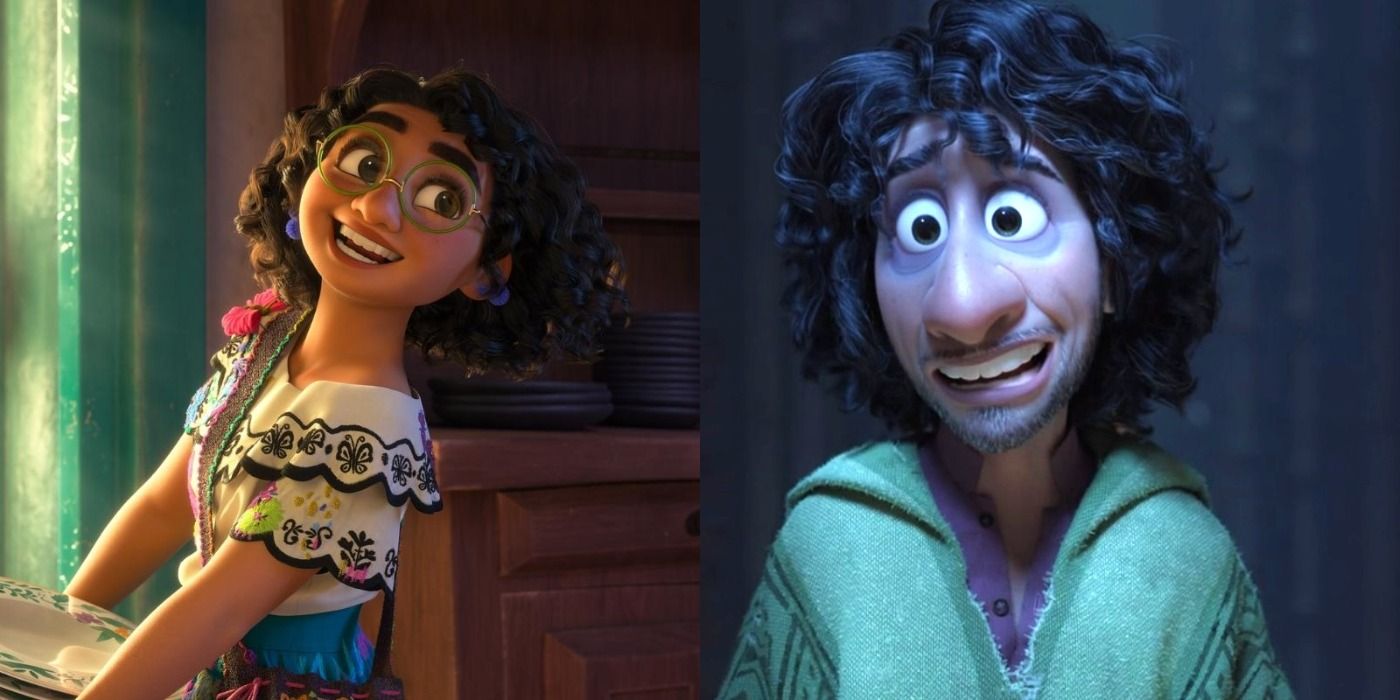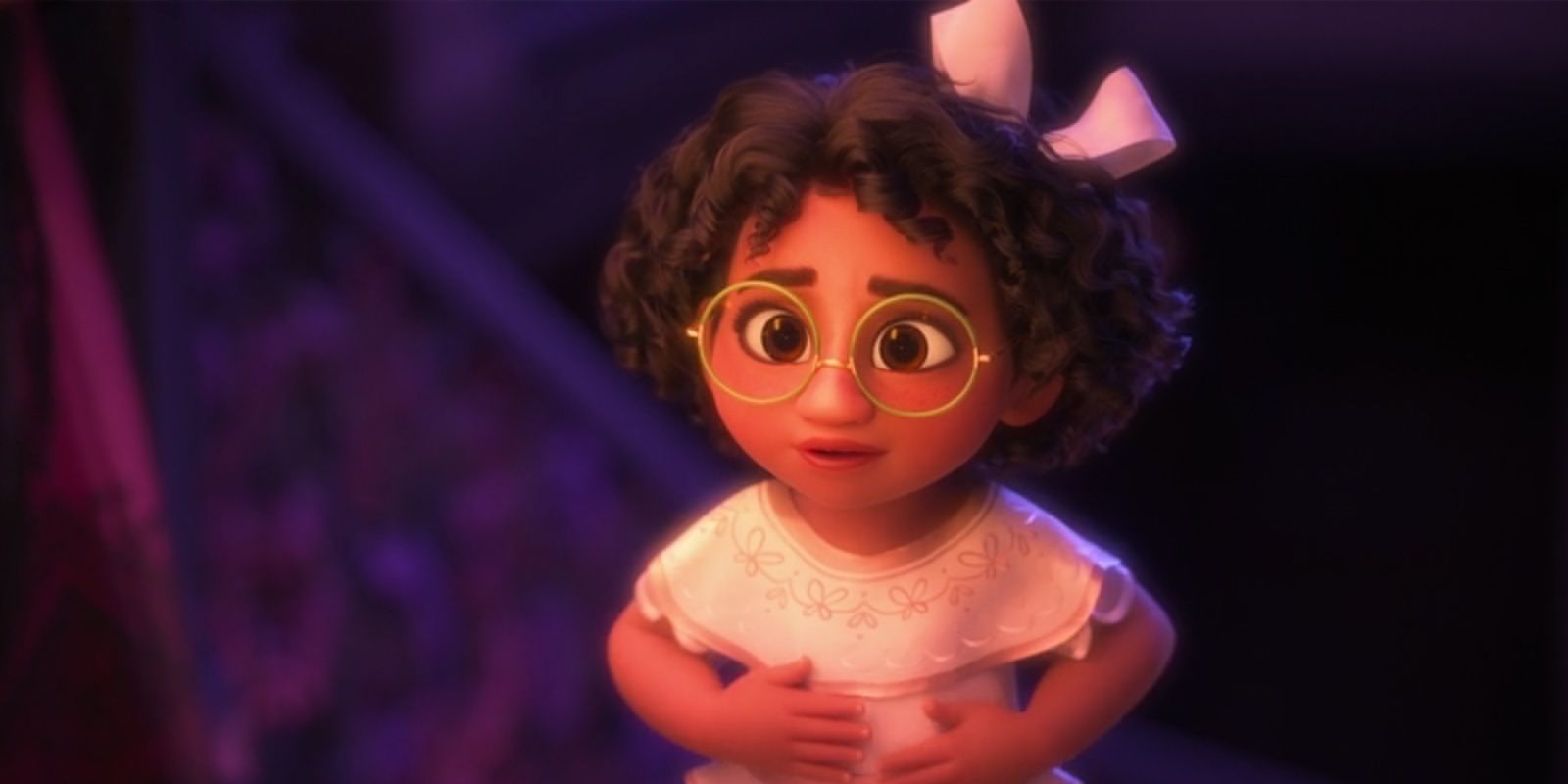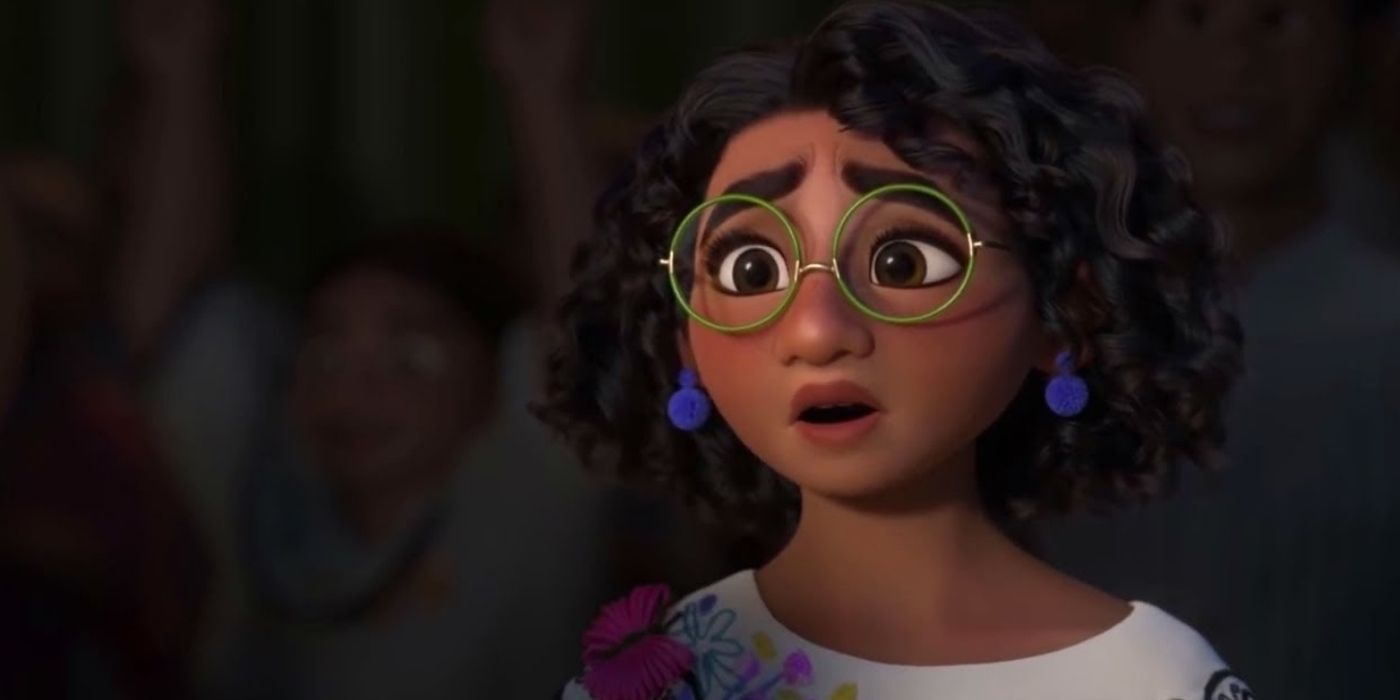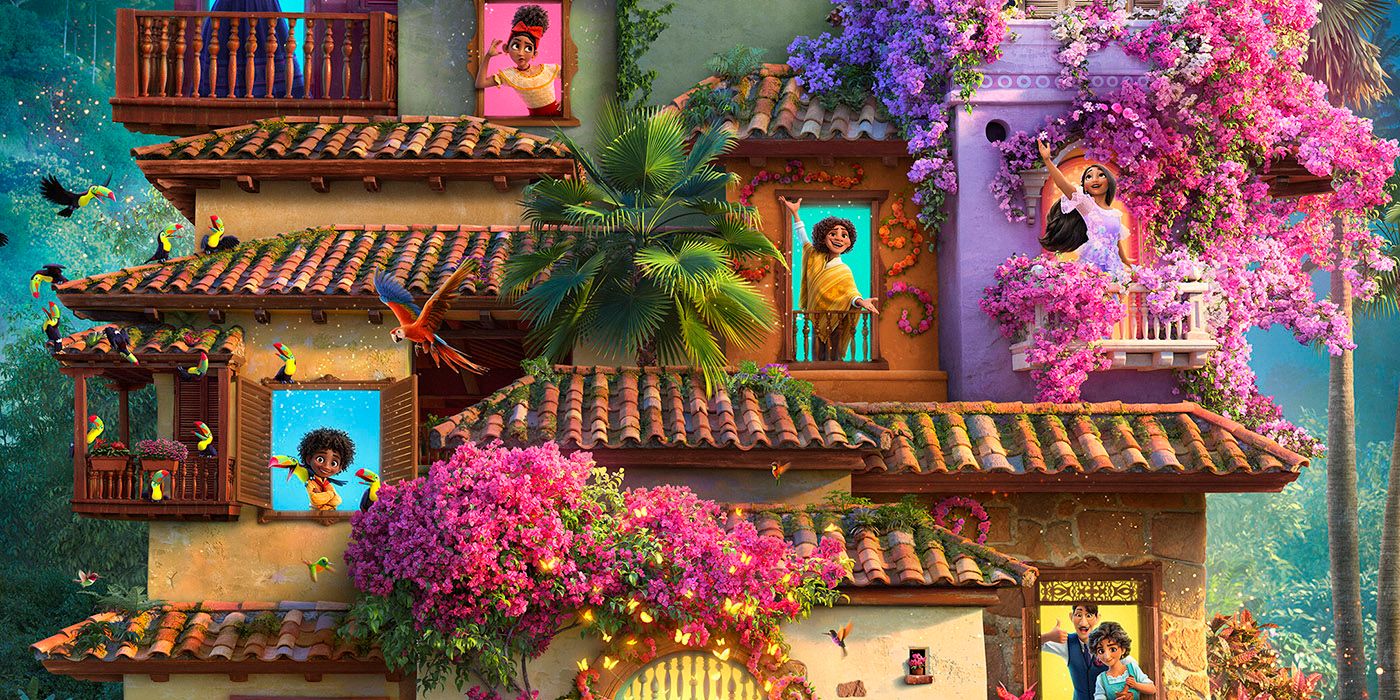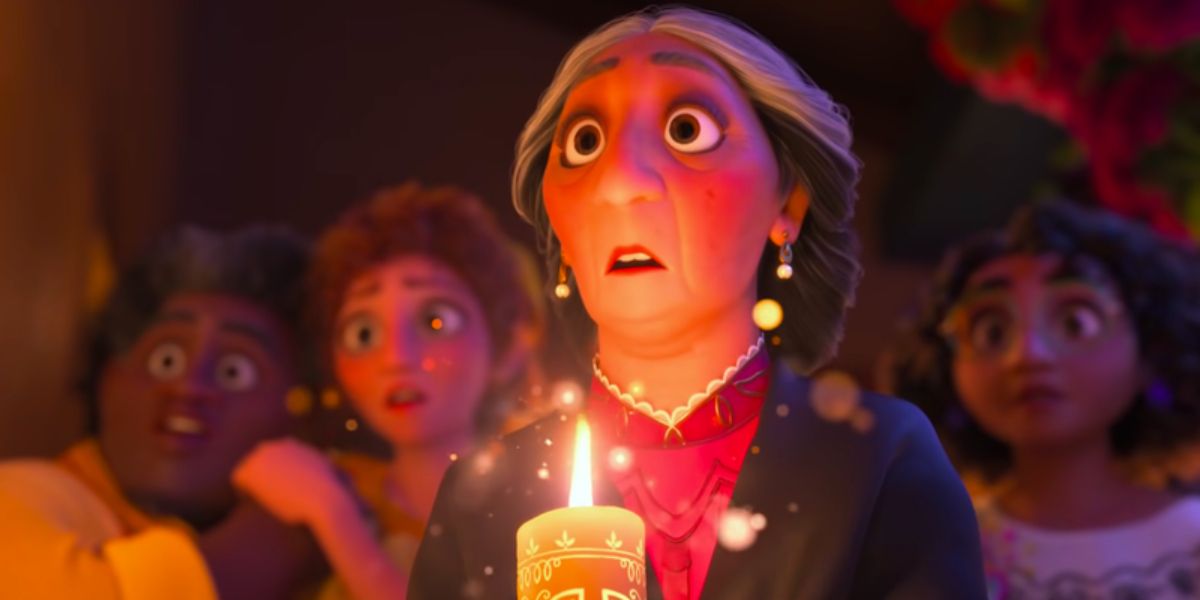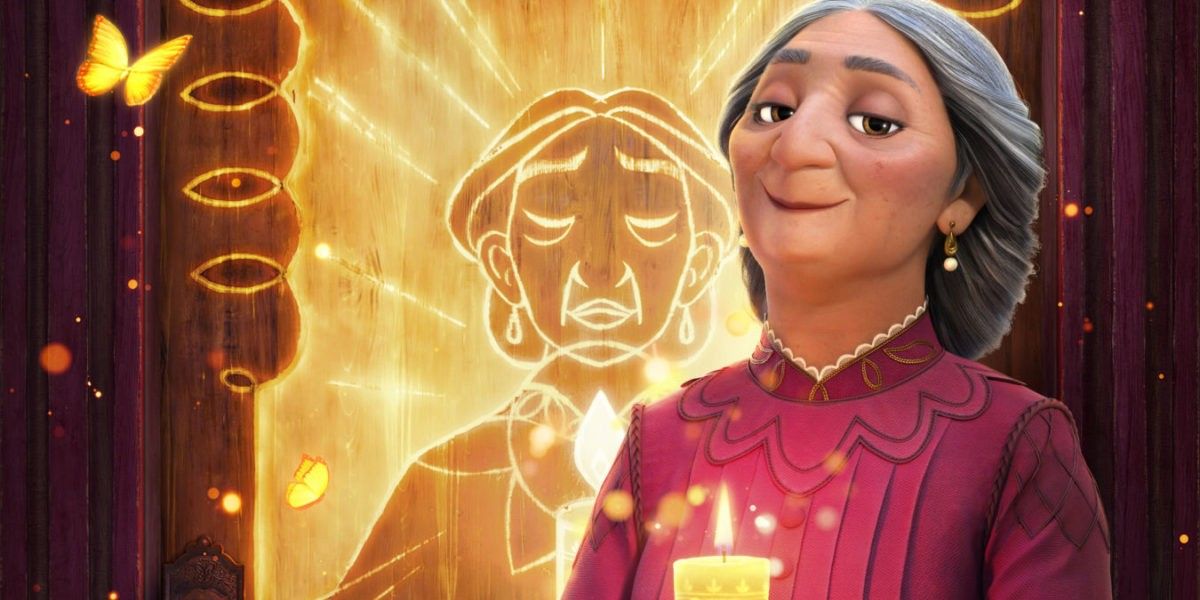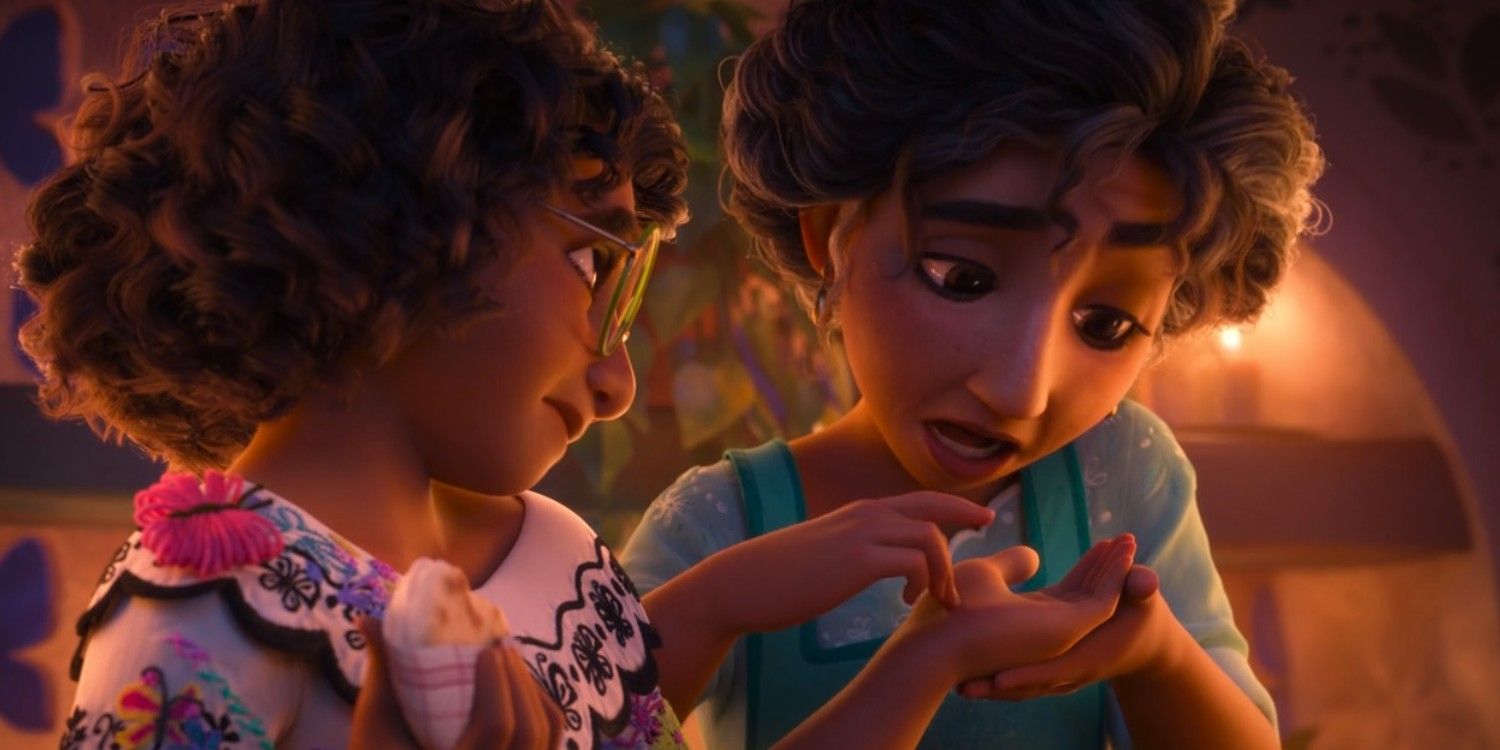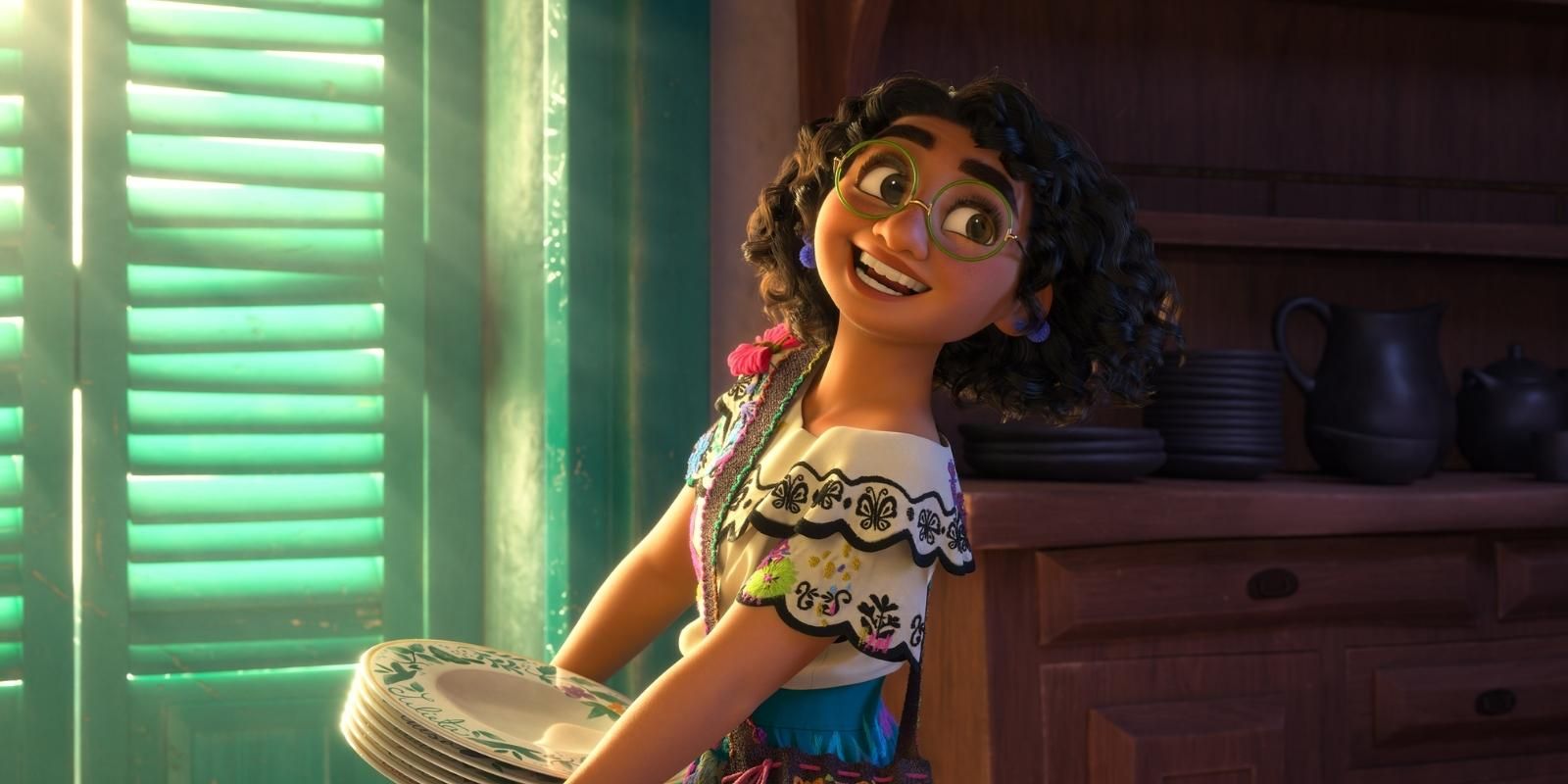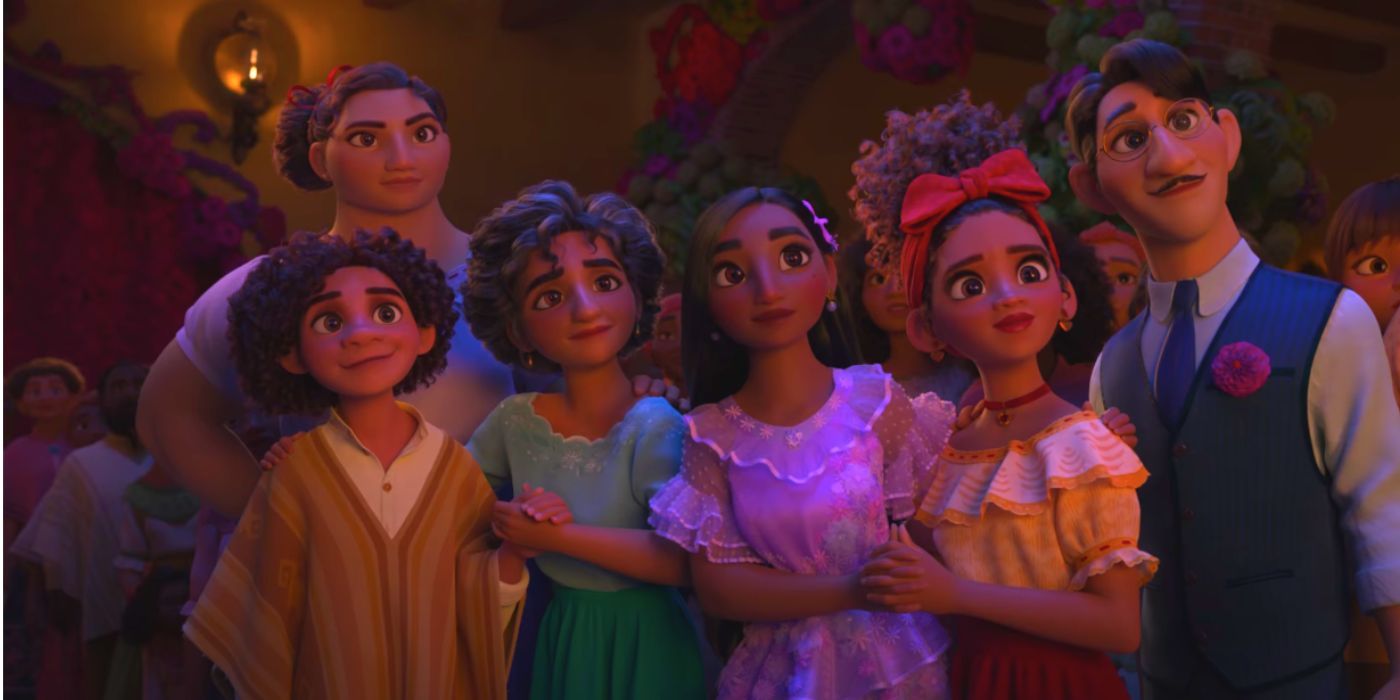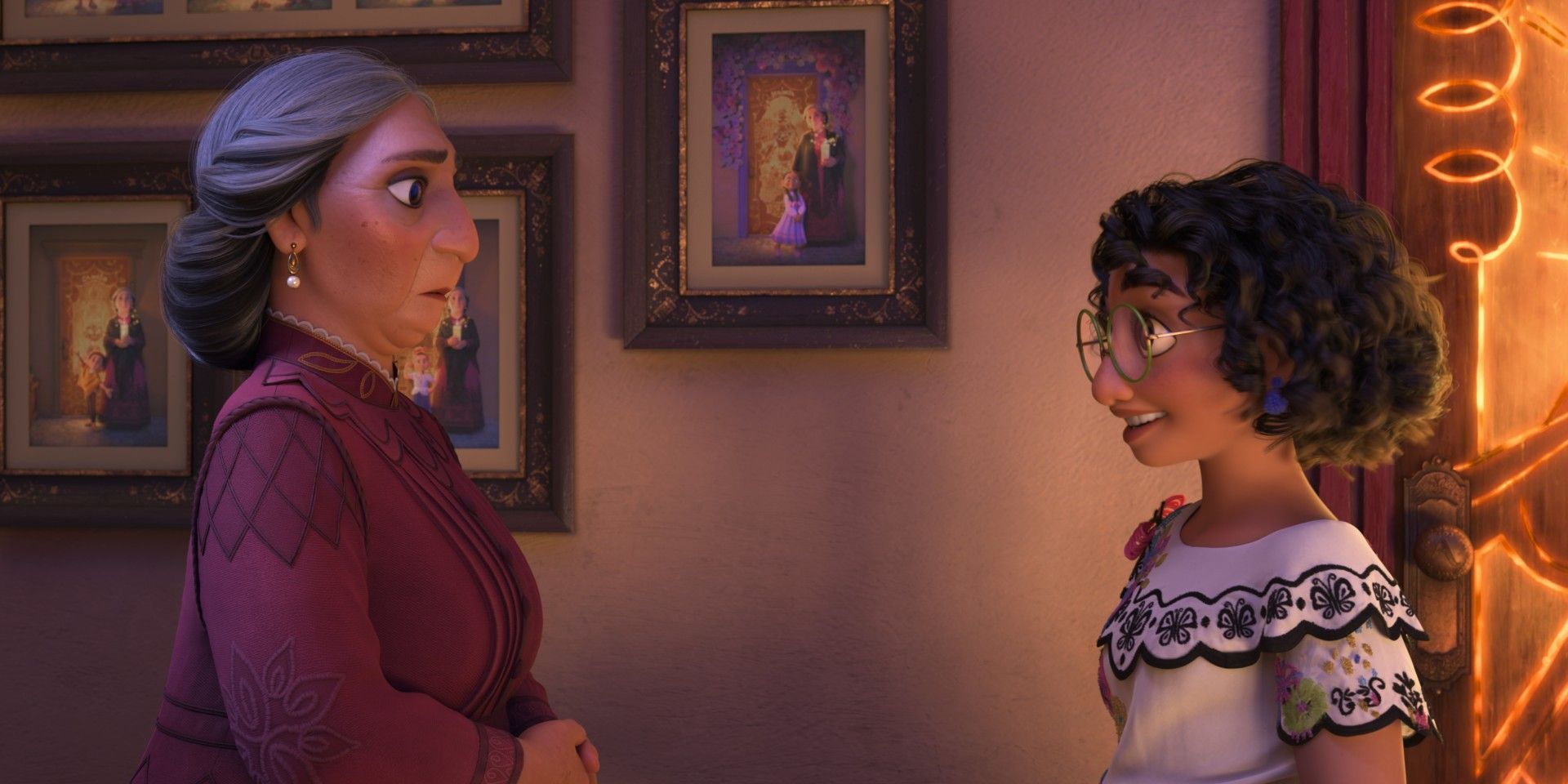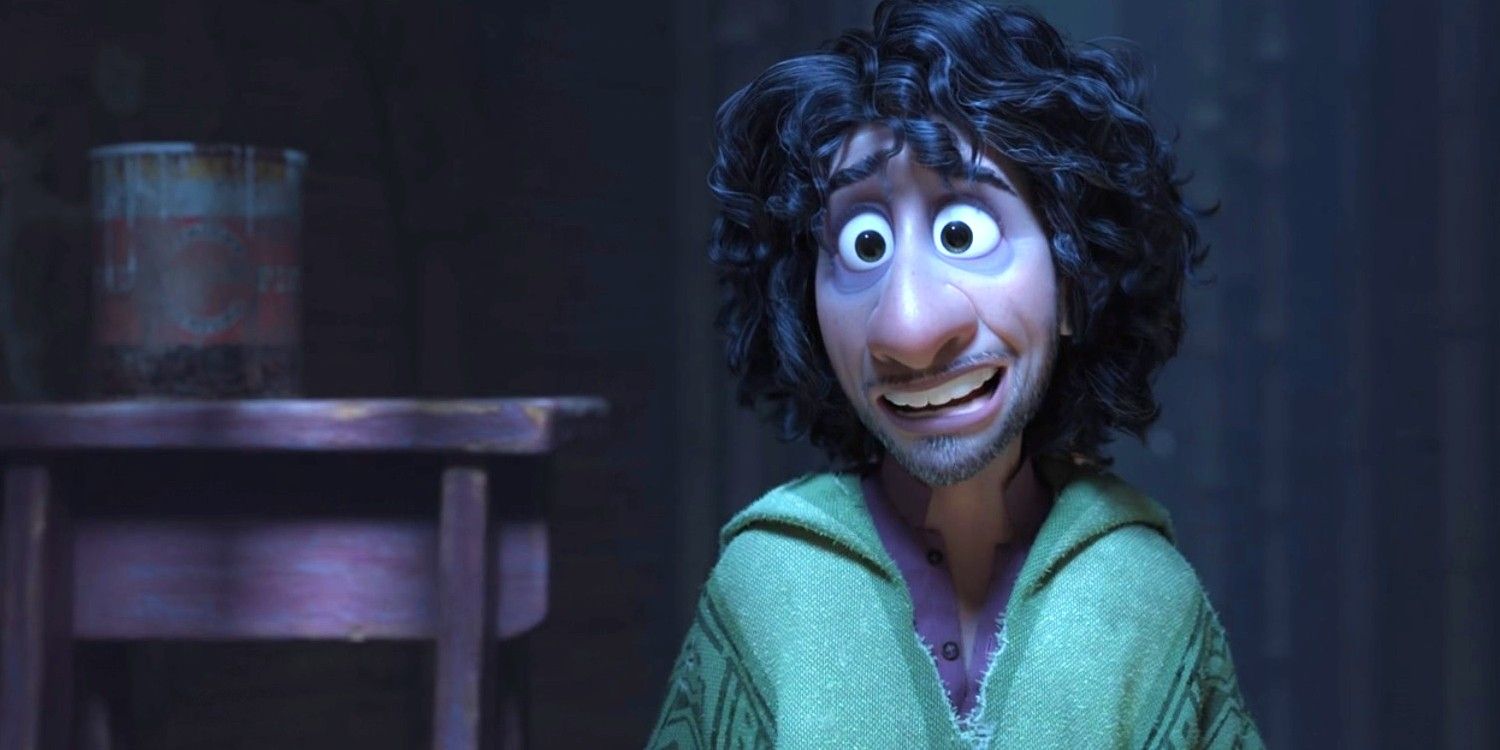Disney’s Encanto has been largely applauded for its originality. The movie has made strides for diversity and representation through its vibrant depiction of Colombian culture exhibited through the inclusion of a wide range of Latinx characters.
This innovation is also palpable in the storyline and character traits, as they stray from many of the tropes and clichés typically found in Disney films. However, there are several classic plot beats and character traits in the movie that viewers will recognize from other stories throughout Disney’s canon.
Clichés
A Main Character Who Doesn’t Quite Fit In
Disney’s lead characters seem to always have something different about them that doesn’t allow them to fit in with their peers, whether it’s Dumbo’s big ears, Hercules’ impossible strength, Mulan’s tomboyish tendencies, and even Princess Tianna’s work ethic in The Princess And The Frog, which leaves her constantly too busy to hang out with her friends.
In the case of Encanto’s protagonist, Mirabel, she is the only blood relative in the Madrigal family that does not possess a special power. This leaves her to often feel left out of the family, and this wistfulness is captured in Mirabel's song in Encanto, "Waiting on a Miracle."
An Incredibly Virtuous Lead Character
Despite enduring difficult or even traumatizing circumstances, such as being forced to work by a cruel stepmother, witnessing a parents death, or going to war in the place of a parent, Disney protagonists tend to maintain an almost obnoxiously positive, perfectly polite, and respectable attitude, gracefully accepting their lot in life with a smile and kindness.
While this is admirable and seemingly a positive trait for a role model, this also models push-over behavior. Mirabel emulates these characteristics, despite feeling not good enough and left out, by often insisting on helping out with chores and being a support system for many members of her family.
Anthropomorphic Objects & Animals
Disney loves to anthropomorphize the world around them, whether it’s cute animal sidekicks, sassy flying carpets, or even a whole ensemble of talking furniture. Encanto slyly sidesteps the animal sidekick trope with a tongue-in-cheek joke by having a parrot land on Mirabel’s shoulder (as if to begin a friendship), only to promptly fly away when Mirabel suggests that they have each other.
However, the movie still features Casita, a magical anthropomorphic house that helps all characters and, of course, sassily but silently responds to their actions and conversations. It even helps them out with chores and gives general support, much like Aladdin’s carpet.
Characters Lose Sight Of What Is Important / Characters Must Learn To Be Themselves
A common conflict in Disney involves a character losing sight of something important. This tends to pair with the trope of a character getting caught up in a false version of themselves. Hercules gets caught up in stardom, Aladdin gets caught up in the act of being a prince instead of focusing on what Jasmine loved, and Mulan tries to fit her family’s feminine expectations but brings more honor to her family being herself.
In Encanto, Abuela loses sight of how important her family’s happiness is by pressuring them to only act in the interests of the community. Due to this pressure, the family members struggle with their sense of selves.
A Surprise Villain
Disney often disguises its villains as helpful supporting characters by introducing them as someone that the main characters trust. The audience sees this more and more often in modern Disney movies. Whether it’s Coco’s Ernesto de la Cruz, Charles F. Muntz in Up, or Prince Hans from Frozen, it’s become a classic trope to pull a bait and switch tactic to introduce the villain of the story.
This is no different for Encanto’s Alma. While her intentions are not malicious, she is the source of conflict and tension within the family, which is the reason behind the destruction of Casita.
Anti-Cliches
No Dead Parents
Disney seems to too frequently introduce conflict, motivation, or hardship for its protagonists is by (rather harshly) killing off one or both of their parents. Bambi, Cinderella, Elsa, Anna, Nemo, and Quasimodo are just a few of the Disney characters that tragically have one or more deceased or absent parents.
This is in stark contrast to Encanto’s lead, Mirabel, as both her parents are not only present throughout the runtime of the movie, but are also incredibly supportive. They remind her that she is special even without a gift and are fiercely protective of her, even if this is not perceived to be in the best interests of the rest of the family.
Main Character Doesn’t Need To Change
Disney characters often need to embark on some journey of change or self-discovery to get to who/where they’re meant to be. Even more "normal" Disney characters are blessed in some ways. Lilo from Lilo and Stitch has her alien best friend fall from the sky and Frozen’s Anna is a princess who ends the first film with a cute boyfriend.
But Mirabel doesn’t need to gain a new ability, train intensively or traverse the ocean to be fulfilled or successful. She is loved and special as she is with no supernatural gift. This is an impactful and inspiring distinction for many young viewers who will never be royalty, go on grand adventures, or have magic powers.
Love Doesn’t Fix Everything
Disney tends to conclude its narratives with the idea that love conquers all. This can be in the form of familial love à la Maleficent and Frozen or romantic love in the form of true love’s kiss that audiences will remember from the classics. Whichever way it manifests, love fixes any Disney hero’s problems.
However, the Madrigal family already has love. The only exception is potentially between Isabela and Mirabel, but remedying this doesn’t prevent Casita’s destruction. Encanto also demonstrates the potential for love to be misplaced or even destructive, as Alma’s love drove her to want to protect her family above everything, including their happiness.
The Villain’s Good Intentions
Whether they’re somewhat redeemable bait-and-switch surprise villains or not, Disney villains have always had bad intentions towards the protagonists. This is also always to advance their goals, which usually are motivated by selfish qualities, such as greed or vanity.
Alma, however, is only motivated by the desire to protect her family and set good examples as role models for the village. When she eventually realizes the devastating impact this has had on her people, she is instantly remorseful. Portraying this character as capable of love and remorse is a refreshingly hopeful message for young viewers who may be dealing with real-life antagonists.
Character's Morals Do Not Align with Appearances
Disney films (especially classic Disney films) habitually express virtue or corruption through the appearance of their characters. If they’re skeletal, flamboyant, ungracefully aging, or even generally not conventionally attractive, they’re probably most likely to be a bad guy. But if they're pretty, they're probably a virtuous main character.
Examining Encanto based on this framework, viewers would think Bruno would be the villain of the story. The description attributed to him with his “7-foot frame [and] rats along his back,” does paint a creepy and imposing image. However, this is far from true, as Bruno sacrificed his place in the family he loved for their protection. There were many times that fans demanded justice for Encanto's Bruno, but deviating from this cliché deconstructs the notion that appearance has any impact on morals.

